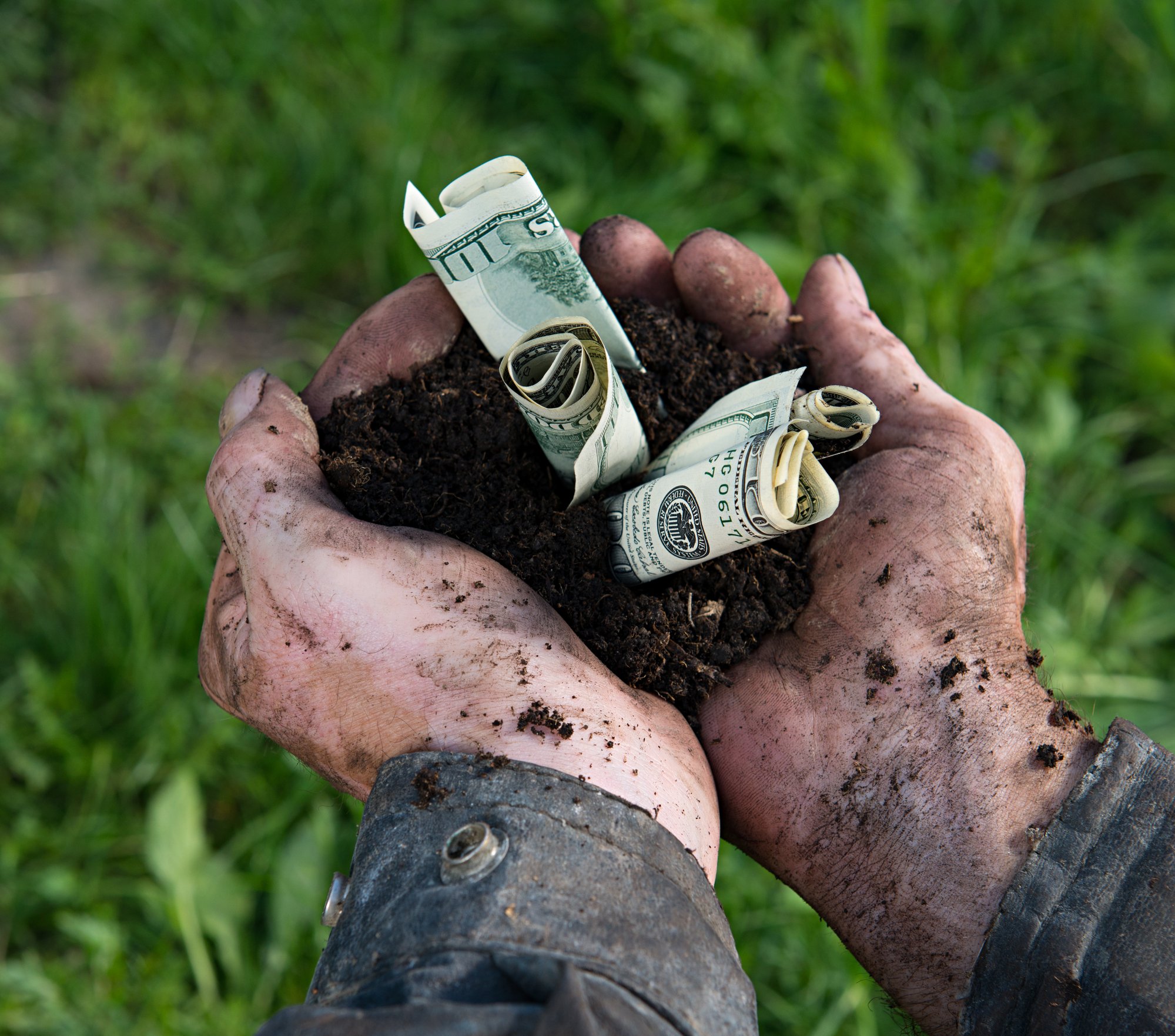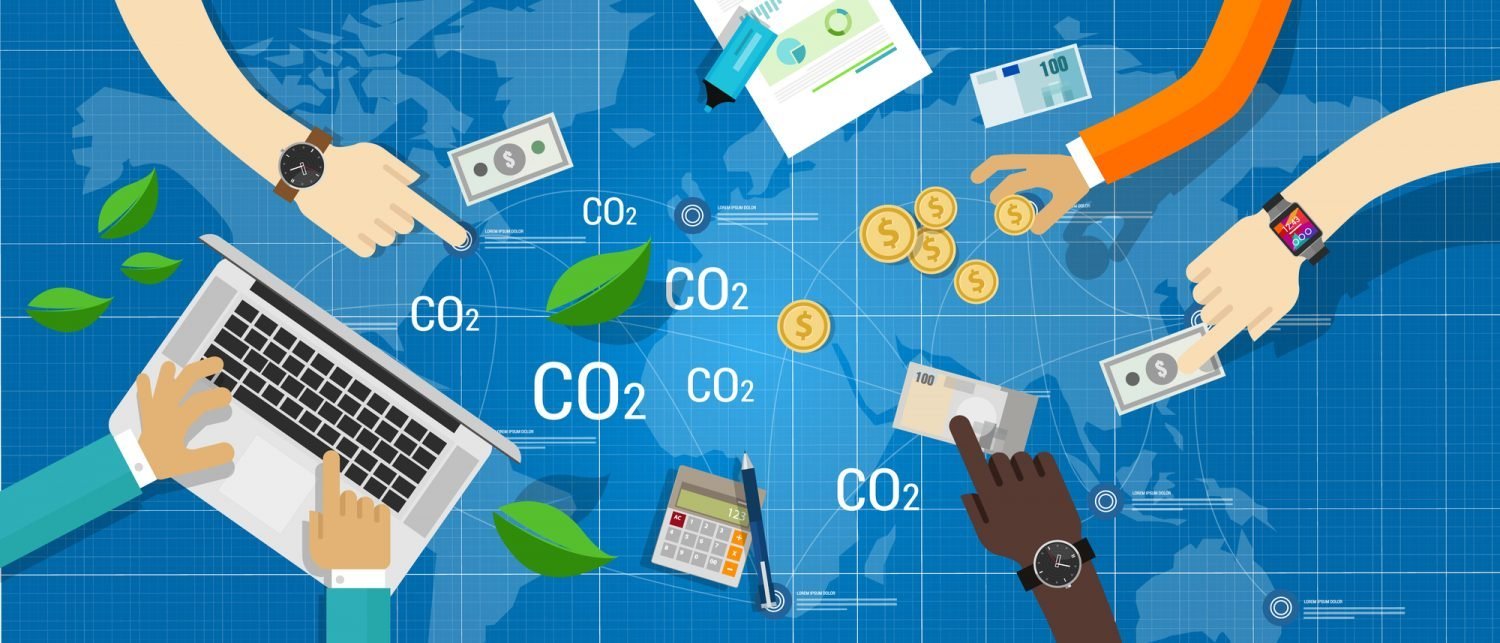“Many farmers skeptically view the concept of climate change," stated an Iowa farmer in a February 2021 article in Successful Farming. “They worry someone who’s never even planted a potted plant in some distant urban environment will start telling them how to farm.”
But the tide may be changing for profit-minded growers. The world is starting to look to farmers for solutions to environmental issues—and offer them financial rewards to boot.
At the top of efforts to curb climate change has long been the reduction of carbon in the atmosphere. Regarding how we can accomplish that, we’ve been told to drive smaller cars and generally live more efficient lives, but the average person can only do so much. That’s where farmers come in, and it's a solution with benefits all around.
How farmers can help reduce carbon

We’ve been involved with the regenerative ag conversation for years, considering our roots in sustainability. Though topics in regenerative ag are wide-ranging, the farming practices essentially revolve around one thing: soil. Carbon is a big part of the picture here, both maintaining it in the soil for optimal health and removing it from the atmosphere and sequestering it in the soil.
We’ve all heard for years about saving the rainforests, saving the trees. Why? “The reason why you want to save the rainforests is because trees naturally take carbon dioxide out of the atmosphere,” explains Chuck Faison, Conservis Cofounder who has been working with customers and the growing carbon market. “I don't know where the tipping point was but somebody somewhere had the brilliant idea of going, ‘Well, rainforests are great, but farmers grow a lot of plants as well.’”
It turns out, of course, that farmers' crops do just what the rainforests do: take carbon out of the atmosphere and put it in the soil, where it stays—as long as nobody stirs it up. Plowing exposes the carbon in the soil to oxygen, which releases it. Soil that is intensively managed loses 50 to 70% of its pre cultivation carbon over time.

Buckwheat, a common cover crop
As the regenerative ag conversation has grown and farmers have innovated the way they always do, practices like no-till and conservation tilling have become increasingly commonplace. As far as carbon goes, that’s a good thing, though there are debates about what no-till means regarding chemical use for weed control (we won’t get “into the weeds” on that topic here).
Another accessible practice is the planting of cover crops to feed, enrich, and protect the soil. The plants—especially the roots—pull carbon from the atmosphere, and cover crops have the added benefits of suppressing weeds and providing grazing for livestock.
Better soil — and more profit?
 Maintaining and increasing carbon in the soil doesn’t just help the environment. It has many benefits to the soil itself—and, in theory, to the farmer’s bottom line. “Soil carbon accumulation promotes aggregation of soil particles, soil water retention, microbial activity, nutrient cycling, and other key soil processes, enhancing overall soil fertility and productivity,” writes Julie McDowell for the University of Nebraska - Lincoln’s Cropwatch. Better soil = better crops = more money.
Maintaining and increasing carbon in the soil doesn’t just help the environment. It has many benefits to the soil itself—and, in theory, to the farmer’s bottom line. “Soil carbon accumulation promotes aggregation of soil particles, soil water retention, microbial activity, nutrient cycling, and other key soil processes, enhancing overall soil fertility and productivity,” writes Julie McDowell for the University of Nebraska - Lincoln’s Cropwatch. Better soil = better crops = more money.
However, like everything in farming, it’s not quite that simple. In their efforts to adopt sustainable practices, farmers have to make sure they can continue farming profitably (that's part of sustainability, after all). The goal is healthier soil without compromising crop yields. It can be tricky and take time to see the financial results.

"We are 100% no-till which evolved since 1991. We went with strip-till and then converted to no-till and we've been very happy with this. Our soil erosion has been greatly reduced, we've seen no penalty in yields, and input costs are lower."
Any changes growers make to their practices have to make sense for their livelihoods, especially when times are tight. What’s exciting is that there’s growing potential for growers to reap direct financial rewards for efforts to adopt sustainable management practices on the farm.
Financial opportunities for growers
 Carbon credits are one way farmers are starting to financially benefit from the adoption of sustainable management practices. The increasing desire of companies to reduce their carbon footprint, even setting goal dates by which they aspire to be “carbon-neutral,” is an opportunity for farmers.
Carbon credits are one way farmers are starting to financially benefit from the adoption of sustainable management practices. The increasing desire of companies to reduce their carbon footprint, even setting goal dates by which they aspire to be “carbon-neutral,” is an opportunity for farmers.
Chuck explains. “They'll do the best they can as a company to reduce their emissions, but they typically can't take it down to zero, what they call net zero. So what they'd like to do is buy carbon savings from somewhere else so they can claim, ‘What I've done on my own plus what I've bought means I am now carbon neutral,’” he said.

"If farmers can embrace these environmentally responsible farming practices and get compensated by companies that can use that responsibility to help their corporation be a good corporate citizen, that’s a good deal all around."
 Even companies like Delta Airlines are getting on board. They recently declared their environmentally responsible aspirations, aiming for carbon neutrality and committing $1 billion over the next ten years to mitigate emissions. For obvious reasons, the only way for a company like Delta Airlines to become carbon neutral is to purchase those savings from somewhere else.
Even companies like Delta Airlines are getting on board. They recently declared their environmentally responsible aspirations, aiming for carbon neutrality and committing $1 billion over the next ten years to mitigate emissions. For obvious reasons, the only way for a company like Delta Airlines to become carbon neutral is to purchase those savings from somewhere else.
Companies like Nori are starting to step in to help bridge the gap here. Chuck: “What Nori did is said, 'Let's set up a marketplace where we can match up these companies with farmers and have the companies then be able to buy the carbon savings that farmers are achieving,'” he said. Chuck is currently working with Conservis customers to explore the financial benefits of carbon-reducing practices backed by years of good data housed in Conservis.
Opportunities for growers often stem from having full traceability of an operation's crops and practices, which requires a farm management system like Conservis.
Carbon credits are definitely a hot topic in ag right now. Perspectives on climate change aside, it’s exciting to see solutions that honor the good work growers are already doing—and the data they’re already collecting.
“There's no question that better farming practices provide a wide range of environmental benefits, including sequestering carbon, as well as economic benefits for the farm,” said John Piotti, president and CEO of American Farmland Trust.
We’re excited to keep exploring these benefits together.
Conservis is the leading independent farm management software system. Get in touch to see what value we could add to your operation.

